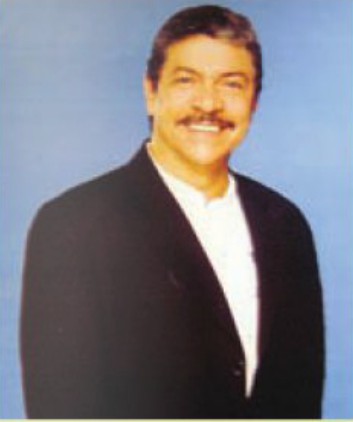
Gustavo Pacheco
g, *1951
Composer of Latin and Rock
Musician and composer from Guayaquil born on December 26, 1951, son of Mr. Gustavo Pacheco García and Mrs. Amarilis Cucalón Estrada. He completed all his studies in Guayaquil: the elementary school at the Víctor Emilio Estrada school, the Vicente Rocafuerte secondary school, and finally he joined the Technological School of Medicine of the Faculty of Medicine of the University of Guayaquil, where he graduated as a Medical Technologist. . His musical vocation began to manifest when he was just 10 years old, in circumstances in which his mother began to teach him to play the guitar. Five years later he formed one of the most remembered youth groups of that era: Los Picapiedras, which accompanied in his performances César Augusto, one of the most fashionable "Nuevaoleros" artists of Guayaquil; later he formed part of Los Incognitos and finally, in 1969 he formed -with brothers Miguel and Homero Gallardo- one of the most loved and remembered musical groups of all time in Ecuador: "Boddega", with which he recorded the first theme of his authorship: El Hombre Sin Cabeza, a song that would identify him forever. El Hombre Sin Cabeza was an unprecedented success at that time when national artists preferred to record songs by foreign artists. Then came, also from his inspiration, themes such as Dame tu Amor, En tu Corazón Tengo un Lugar, En tus Ojos y en tu Sonrisa, etc. His fame as a good composer was soon recognized throughout the country and Ecuadorian producers and artistic directors constantly requested him to compose songs for other performers. Jinsop, a Korean-Ecuadorian artist of great remembrance, became his best and most faithful interpreter with themes such as Ven Chiquilla Ven; the Argentine "El Indio Bravo Molina" recorded his composition Vuelve a mi Lado; the Puerto Rican Sophy recorded her song Mujer, the Spanish Bachelli Por que te Enfadas, among others; and the American Sunny theme Te Necesito, composed with Eduardo Neira. In 1977 he traveled to Madrid hired by the famous Peruvian artist Betty Misiego, then and during the five years he spent in Spain, took the opportunity to start musical studies in different academic centers. Upon his return to Ecuador, in 1984 he made the musical arrangements with which Alfredo Mármol won the Festival OTI, chapter Ecuador; and the following year it occupied the Second Place in this festival, with the theme La Pinta, La Niña and Santa María, which he composed with Luis Padilla Guvara. A few days later, the festival's winning song was disqualified for having won a song festival held in Sullana, Peru, for which La Pinta, La Niña and Santa María, performed by the indigenous artist Jesús Fichamba, was sent to Seville to represent our country. In Spain the Ecuadorian song was the true winner of the OTI International festival, but issues of political and emotional interest gave the tiebreaker victory to the song Fandango, which represented Mexico, which in previous days had suffered a terrible earthquake, and only reached the second place. Besides being an acclaimed composer and a renowned arranger and orchestra conductor, he has accompanied, as guitarist of exquisite sensibility to famous artists such as the Mexican Armando Manzanero and José José, the Cuban Celia Cruz, the Brazilian Nelson Ned and the Spanish Paloma Saint Basil, among many others. As for the nationals, there is not one that has not been musically backed by him. In 2007, called by the PRE, but without being affiliated was nominated to the National Constituent Assembly.
